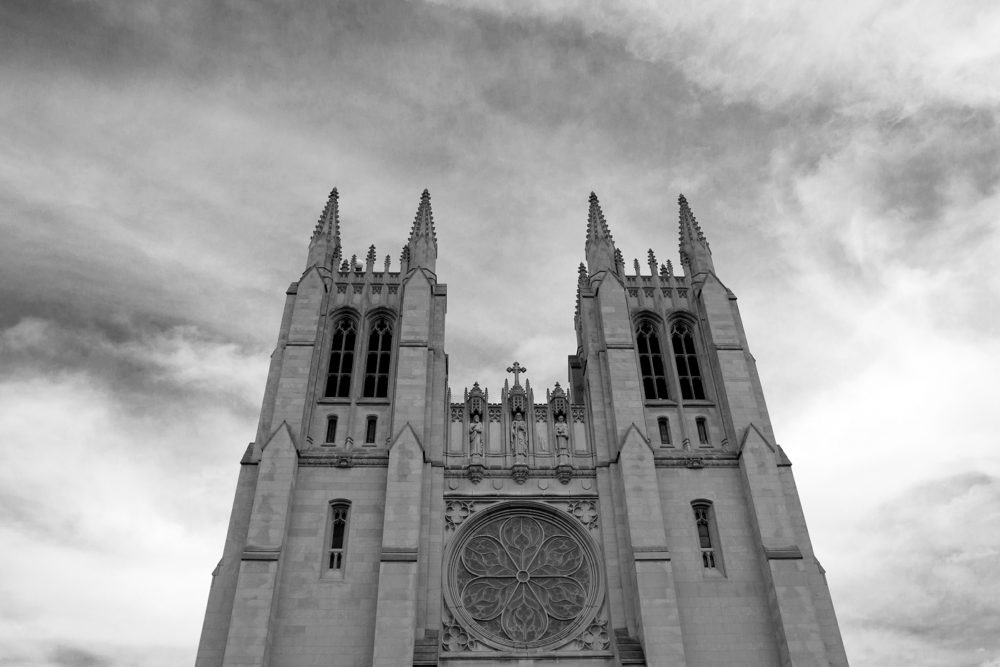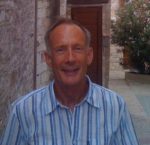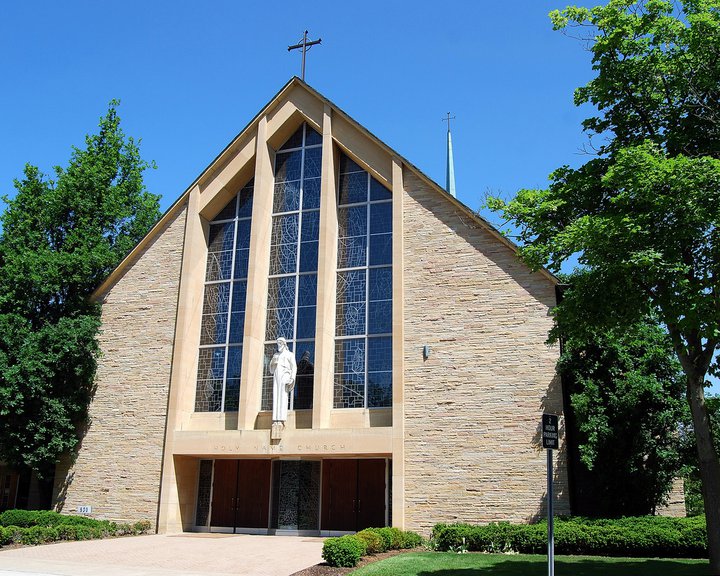
This piece is part of Motor City Muckraker’s growing watchdog team, which is dedicated to keeping you informed as we transform into a nonprofit. Your donations are key to our ability to produce more vigorous, meaningful, nonpartisan journalism at a time when news rooms are cutting back on impactful, investigative stories.
The former editor of the Archdiocese of Detroit’s newspaper says he was fired in retaliation for speaking out against the cloak of silence surrounding the church’s sex abuse scandal — but the chancery official accused of silencing the Catholic press says he knew nothing about the predatory priests before the public did.
buy valtrex online noprescriptionbuyonlinerxx.com/valtrex.html no prescription
Veteran journalist Jay McNally says he became aware of two predatory priests while he was editor of the Michigan Catholic, but he was prevented from reporting the horrific allegations by then-Archbishop Adam Maida, the archdiocese’s director of communications Ned McGrath, and Msgr. John Zenz, a classmate of mine at Sacred Heart Seminary.
“Most of the men running the archdiocese of Detroit were incomprehensibly deceitful,” McNally wrote in a searing piece for the Church Militant last month.

McNally says Zenz, who now is pastor of Holy Name Catholic church in Birmingham, was his boss at the newspaper and was instrumental in concealing allegations in 1993 against the Rev. Gerald Shirilla, who was accused of molesting numerous boys since the 1960s.
buy clomid online rxxbuynoprescriptiononline.net/clomid.html no prescription
Zenz, however, denied that he was McNally’s supervisor.
McNally says that in 1993
he also learned about sexual abuse allegations against the Rev. Robert Burkholder, a Catholic priest who was charged and convicted of sexual misconduct nine years later following accusations of abuse by more than 20 boys, going as far back as 1949. Then-Wayne County Prosecutor Mike Duggan described Burkholder as “one of the worst pedophiles we have ever had in this state,” telling his victims their bodies were “gifts from God” just before they were molested.
McNally says Zenz was “basically running the archdiocese” when the monsignor served as moderator of the curia under Maida from 1990 to 2008. After reading McNally’s article, I asked Zenz about his role in concealing information on predatory priests, and he told me, “I was just as much in the dark as you” about sexual abusers in the archdiocese.
McNally, who says he was fired for not cooperating with the archdiocese’s cover-up in the 1990s, responded, “John Zenz is an unscrupulous liar.”
Zenz was Maida’s right-hand man when the scandal was first unfolding. The Detroit archdiocese reportedly followed the same playbook as documented in the movie Spotlight and in the Pennsylvania grand jury report, —quietly sending perpetrators off to brief treatment for “rehabilitation” and then assigning predators to other parishes where they could molest children again.
buy prednisone online rxxbuynoprescriptiononline.net/prednisone.html no prescription
The Detroit church was so successful in this strategy that it has paid far less in compensation to victims than other dioceses.
In the online Church Militant, McNally fingers Zenz as responsible for a cover-up of the crimes of priests. He details how the archdiocese tried to quash several initial revelations of priestly misconduct while he was the editor of the Michigan Catholic and Zenz was his boss.
McNally says Zenz demoted him and eventually had him fired when he balked at orders to conceal information about the notorious pedophile, Shirilla. McNally was raising three children when he lost his job for refusing to cooperate with the archdiocese’s damage-control program. But Zenz tells me he had nothing to do with McNally’s dismissal and wasn’t even his supervisor — archdiocese director of communications Ned McGrath was. (McGrath did not return multiple phone messages asking for clarification of the chain of command.)
Zenz, who has been speaking recently about the scandal at his parish, at first agreed to a sit-down interview but then three days later called me and abruptly cancelled it, refusing to respond to McNally’s article.
Asked about when he knew about priests who were abusers, Zenz claimed, “Only when things were printed in the newspapers did I learn about them.”
Zenz added that the whole topic of clerical abuse “was not in my area of competency” when he was at the chancery and claimed that “I was way down the line in terms of executing orders” about removing priests from their duties.
McNally’s response: “I wouldn’t believe a syllable of what John Zenz said.”
Responding to the recent deepening of the scandal, Detroit’s Archbishop Allen Vigneron last month released a statement concerning “our ongoing efforts towards abuse prevention and response.” Vigneron referred to past “failures …… to ensure that the perpetrators lost their positions of authority.” He said “our diocese accepts and responds to all reports” of priestly misconduct and added: “We must give an accounting for the failures that have occurred.”
On Sept. 2, during a sermon by Cardinal Donald Wuerl in Washington, D.C., a man got up and shouted, “Shame on you!” for the cardinal’s role in the cover-up. On that same day, Msgr. Zenz gave a homily at Holy Name to a church whose pews were half empty.
Nobody was protesting.
Zenz has been pastor at Holy Name since he left the chancery — but it’s unclear how many of his current parishioners know anything about his past responsibilities.

As the noonday sun poured through the church’s stained-glass windows, Zenz stood in front of the altar. He is a confident, expressive, and gifted speaker, and skillfully used passages from the day’s Gospel readings to make points about weathering the current turmoil in the church. He mentioned “the crimes priests have committed” and the “bishops and others who have been responsible.”
Zenz said “we all feel the pain” of the victims but decried a “lot of finger-pointing” in the church and talked about how “we all live with ambiguity” in our lives and our relationships.
In his weekly church bulletin, Zenz wrote that “we continue to live with the pain and tragedy caused by the criminal behavior of many priests and bishops.” He noted: “People tell me the trust and confidence they had been taught to place in the Church and its ministers has been betrayed.” And he thanked believers for still coming to Mass “despite the faults of many of us, the Church’s ministers.”
“I underscore that what these priests have done are crimes, not merely sins,” he wrote, “a public act which deserves public justice and reparation.” He added: “As members of the Church, even if we are innocent, there is a certain amount of associated guilt in being ‘part of the system.’”
Zenz had been sermonizing about the scandal for two prior weeks. In an August 26 sermon, he urged his parishioners to “hang in there with leaders who have betrayed our trust, with priests who must have hurt us” and concluded that while it would be easy to leave the church, “to stay takes real courage.”
But in none of these remarks or writings has Zenz admitted to any specific personal missteps, referring only to collective failures by church authorities in generalities.
The archdiocese has a new website with a mechanism to report abuses past and present. There it says it has turned over all files on accused clergy members to the authorities. But even as it makes public its dedication to helping victims, the archdiocese earlier this year lobbied hard in Lansing, along with Michigan State University and other institutions, against expanding the state’s statute of limitations for reporting sex abuse.
A prominent group that collects data on the priest abuse scandal, Bishop Accountability, lists 63 accused priests in the archdiocese of Detroit and says the church has spent $1.37 million here in compensation to victims — a pittance compared to most other local U.S. dioceses of comparable or even lesser size.
For example, Bishop Accountability counts 55 “credibly accused” priests in the archdiocese of Chicago — and $38.7 million in payouts.
Another leading group of critics, SNAP, the Survivors Network for those Abused by Priests, is calling for all 50 states to convene grand juries like Pennsylvania’s to investigate the extent of the church’s involvement in covering up the scandal.
McNally was hired by the Michigan Catholic as editor in 1990 after a career working on newspapers. A devout and active Catholic, he’d served on the archdiocesan pastoral council, a large advisory group of laypeople and clergy, and for awhile was its moderator.
Though the bylaws of the Michigan Catholic gave the editorial staff of the paper ultimate authority over what was printed, the chancery made every effort to control the message, says McNally, using communications director Ned McGrath to shape coverage. McNally says Zenz was both McGrath’s direct supervisor and his.
In the fall of 1992, McNally was told by another source that Gerald Shirilla had abused altar boys at his parish. So in January 1993, when it was announced Shirilla was being put on leave, McNally already strongly suspected why. But McGrath refused to answer McNally’s direct questions about whether Shirilla was a pedophile and told him to stick to the chancery’s terse announcement.
McNally says he responded by writing memos to Zenz trying to clarify the paper’s policy, saying there couldn’t be one journalistic standard that applied to everyone except dismissed priests. Local TV and radio outlets were sniffing around the story. So was The Detroit News, which backed down from an exposé for months when its attorneys got nervous and McGrath stonewalled. Finally, McNally wrote directly about Shirilla to Cardinal Adam Maida, with whom he had regular weekly “soft” Q-and-A sessions.
McNally says Zenz never replied to any of his memos or the letter to Maida and instead hired another journalist to supervise him and review articles before publication in the Michigan Catholic. After a year, Zenz sent another priest, Pat Halfpenny, to give McNally his walking papers. During this time, McNally says Zenz never spoke to him. McNally says Zenz “was careful not to leave his fingerprints on anything.”
Later in 1993, news about Shirilla eventually came out, despite the archdiocese’s efforts to conceal it. Shirilla had abused star athletes Tom Paciorek and his three brothers while teaching at St. Ladislaus High School in Hamtramck. Tom Paciorek, who went on to play major league baseball, revealed that Shirilla would take him to the seminary as a teenager and molest him. Shirilla did the same with Paciorek’s younger brother Michael.
Shirilla was accused of abusing at least seven children from 1972 to 1981. In 1993, Declan DeMeyer sued Shirilla and the archdiocese over abuse charges, but the case was dismissed because the statute of limitations had expired. Shirilla was sent to a treatment center in Maryland for a year of counseling and drug therapy. But he returned to Michigan in 1994, was reassigned to the Gaylord diocese, and became pastor of St. Mary’s in Alpena. He continued his abuse, but was not removed from his parish assignment until 2002.
Several times, Maida sought to have other civil sex abuse lawsuits against Detroit area priests tossed out because of the statute of limitations. Zenz “knew everything that was going on during those years in the archdiocese,” says McNally. “He was on top of all the day-to-day operations. Maida was in some ways more of a figurehead.”
McNally adds that McGrath, as the official “public face of the archdiocese,” couldn’t have said anything or acted on his own without being accountable to Zenz.
Asked for comment on McNally’s article, McGrath emailed only this statement, which apparently was meant as a blanket condemnation: “Read the article carefully and make your own judgment. I will not say a single word about this. I believe the article speaks for itself.”
Harry Benjamin, who McNally describes as Zenz’s best friend, was removed from the ministry in 1991 or 1992, but his name was not revealed publicly until 2002, after which he became the only priest prosecuted in Michigan for sex crimes and spent a year in prison.
Shirilla, reassigned to Alpena, started a travel agency there with Benjamin in the late 1990s, and McNally believes the archdiocese might have funneled business to them. But when I asked Zenz about Benjamin, he told me, “I never knew him to be involved” in any misconduct.
SNAP recently publicized an internal memo sent in 1997 by Bishop Bernard Harrington to Mgsr. Zenz and Bishop Kevin Britt concerning a mediation process involving accusations of sexual harassment against Fr. Louis Grandpre, saying a $160,000 settlement had been recommended in his case. Harrington wrote that the case ought to be settled to avoid “public scandal.” Grandpre worked at four parishes, the last being St. Paul of Tarsuas in Clinton Township, where he remained until retiring in 2003 — six years after the Harrington memo. In an email, I asked Zenz about this and how it squared with his assertion to me that he was not aware of such matters until they were publicized. Zenz has not replied.
Catholic seminaries were the primary training grounds for priestly abuse. There, victims were selected and groomed as prey. Perpetrators learned their craft. Authorities perfected their methods of enabling, excusing, and concealing what was going on. Many of the prime players in the scandal were connected with the archdiocesan seminaries.
Bishop Accountability called seminaries “a very important element of the abuse crisis in the United States and worldwide. …. seminarians were not infrequently victimized by staff and faculty. This generational abuse created groups of seminarians who, after ordination, would share victims and techniques. …The culture at some seminaries seems to have facilitated abusive behavior, and seminaries also fostered a silence about abuse, even among seminarians who were not involved in molestation.”
That was certainly true at Sacred Heart. During our time at the seminary on Detroit’s west side in the late 1960s, victims were groomed, predators developed, and methods of concealing what was happening were perfected. The silence continues to this day, with many of us still unclear about what went on there.
My classmate John O’Brien made a statement at an event at Sacred Heart in 2010: “I was surrounded by a predatory culture of sexual abuse that grievously hurt too many of my friends and undermined the moral fabric of what was supposed to be sustaining me. . … No one has ever asked me or my classmates about our experience, how we were affected; no one asks why so many of our classmates do not want to have anything to do with this place; no one has apologized. The rector and members of the faculty were complicit in fostering a predatory sexually abusive culture in this institution for a decade before the father of an abused student took the necessary action to stop it. Even then, the rector and faculty were assigned to parishes to continue functioning as priests, only to abuse again.”
The rector of the seminary was there when O’Brien made these remarks. So was the head of the board of trustees at Sacred Heart, John Zenz. No one from the archdiocese or the seminary has ever responded to O’Brien’s remarks.
I wasn’t personally targeted in high school and was completely oblivious to what was happening. But recently I’ve learned more about how some of the faculty at the seminary modeled a culture of sexual abuse that was taken up by some of the older college students on the same campus against some of the younger ones, that at least two rectors were serving as pimps or recruiters for other priests, and that this culture was known beyond the seminary walls.
I’m told some parish priests refused to send students who might have a vocation to Sacred Heart, because its reputation for abuse was widely known among the archdiocesan clergy.
Though Zenz and I were both boarding students in high school, sleeping in the same huge dormitories for four years, we had little contact. I thought of him as the holiest guy in our class. He was always the first one in the chapel for morning prayers and the last there in the evening.
My social group, focused on defying the various arbitrary rules and questioning authority, didn’t admire his piety. In fact, many of my classmates picked on him. When we played dodge ball in gym class, Zenz cowered in the corner and was often mercilessly pummeled. That’s my clearest memory of him. (I’m told, though, that he was very good at handball, a sport whose difficulty I didn’t appreciate until years later.)
Only a handful of my classmates became priests, and Zenz became a star in the archdiocese. As the abuse scandal unfolded and some of my classmates continued to struggle with what had happened to them at the seminary, I know at least a few sought out Zenz for help while he was working at the chancery. But when they dared to broach the subject of priestly abuse with him, I’m told he would grow silent.
This week, Zenz told me the scandal that unfolded under his nose was “a tragedy. People didn’t understand the gravity of it at the time. The reports never got to the proper people at the proper time.”
McNally says Zenz “intentionally did all he could to keep [the perpetrators] away from the civil authorities and to deceive parishioners about the criminal background of the priests.”
Next month, my high school class is holding its 50-year reunion. The dinner is being held at Holy Name, John Zenz’s parish. When I asked him if he would give any accounting at the reunion, he replied, “I don’t have anything to say.”
Motor City Muckraker is an independent watchdog without advertisements. Your donations help us continue providing vigorous, nonpartisan investigations.
Michael Betzold
Michael Betzold is a former Free Press reporter and longtime area freelance journalist. He wrote Queen of Diamonds, a history of Tiger Stadium. He lives on Detroit’s east side.
